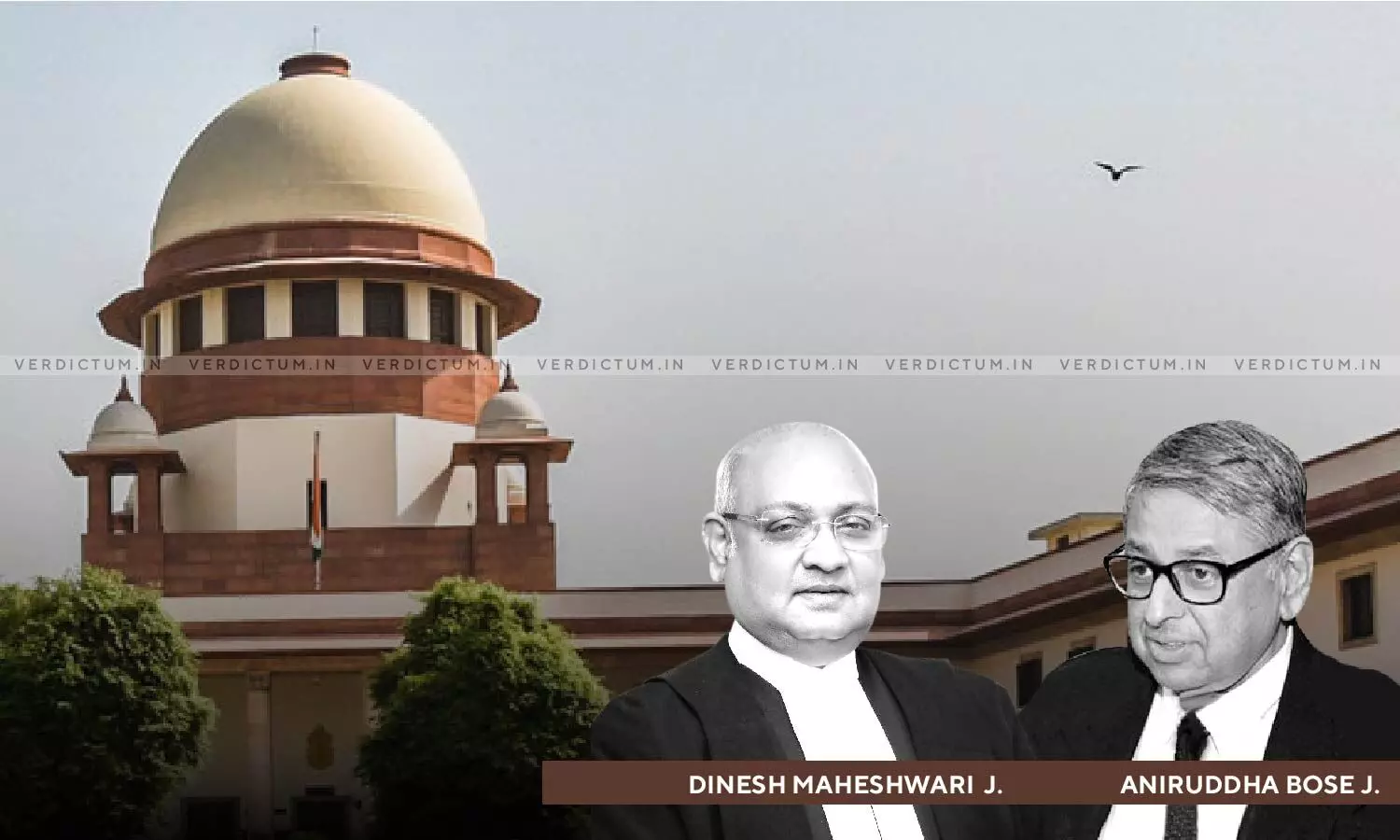
Section 32, Advocates Act Doesn't Bar Power Of Attorney Holder To Appear For A Party Just Because They Enrolled As An Advocate- SC
 |
|A Supreme Court Bench of Justice Dinesh Maheshwari and Justice Aniruddha Bose quashed a judgment passed by Andhra Pradesh High Court by holding that Section 32 of the Advocates Act, 1961 does not prohibit a General Power of Attorney (GPA) holder to appear before the Court on behalf of a Plaintiff, simply because the GPA was an enrolled advocate. The Court also stressed on the principle of res judicata.
In that context, it was held that "this issue concerning the capacity of the wife of the appellant to participate in these proceedings as his GPA holder cannot be agitated over again in these very proceedings, even if the earlier orders granting such permission to her are suggested to be erroneous."
Further, it was pertinently observed that "We are unable to appreciate the contention which suggests that the said Section 32 creates a bar for the wife of the appellant to seek permission of the Court to appear on behalf of her husband in her capacity as GPA holder because of she being an enrolled advocate. The enabling provision of Section 32 of the Act of 1961, whereby any Court, authority or person may permit any non-advocate to appear before it or him in any particular case is difficult to be read as creating a corresponding bar in giving permission to a GPA holder of a party to represent that party as such, if the said GPA holder, during pendency of the proceedings in the Court, gets enrolled as an advocate."
Counsel K Parameshwar appeared for the Appellant.
In this case, the issue concerned the capacity in which the Appellant's wife could appear and act on his behalf in certain civil proceedings. Notably, the Appellant's wife held his GPA and was also an enrolled advocate.
Initially, the Trial Court and the High Court had held that merely for the wife of the Appellant being an advocate, there was no prohibition in law for her to act on behalf of her husband as a GPA holder but, it was made clear that she would appear in-person as a power agent of her husband and not in her professional capacity as an advocate.
However, through the impugned judgment, a Division Bench of the High Court held that it was not permissible for a GPA holder to participate in the proceedings. Subsequently, the Appellant approached the Supreme Court.
The Supreme Court analysed the issue of res judicata, observing that the doctrine is attracted not only in separate subsequent proceedings but also at the subsequent stage of the same proceedings, and that a a binding decision cannot lightly be ignored and even an erroneous decision remains binding on the parties to the same litigation and concerning the same issue if rendered by a Court of competent jurisdiction.
In the extension of the same, the Court held that "In true application of these principles, it would appear that the orders passed in these matters by the High Court on 20.04.2018 and 14.12.2018, as regards the issue of participation of the wife of the appellant in these proceedings as a GPA holder of the appellant, remain binding on the parties and cannot be ignored."
Further, referring to Section 32 of the Advocates Act, 1961, the Court observed that "there does not appear any statutory prohibition operating in the party cannot be given permission to appear only as the GPA holder, even if he/she has been enrolled as an advocate".
Quashing the order passed by the High Court, the Supreme Court said that "it is apparent that the High Court has viewed the entire case from an altogether wrong angle, i.e., by misdirecting itself on the real point for determination; by not taking into comprehension the meaning, purport and effect of the previous binding orders dated 20.04.2018 and 14.12.2018 between the same parties in the same proceedings; and by misapplication of the Division Bench decision of the same High Court. This misdirected approach has resulted in the High Court ignoring the doctrine of res judicata and issuing such directions which are squarely opposite to the directions contained in the previous binding orders."
Cause Title: S Ramachandra Rao v. S Nagabhushana Rao & Ors.
Click here to read/download the Judgment